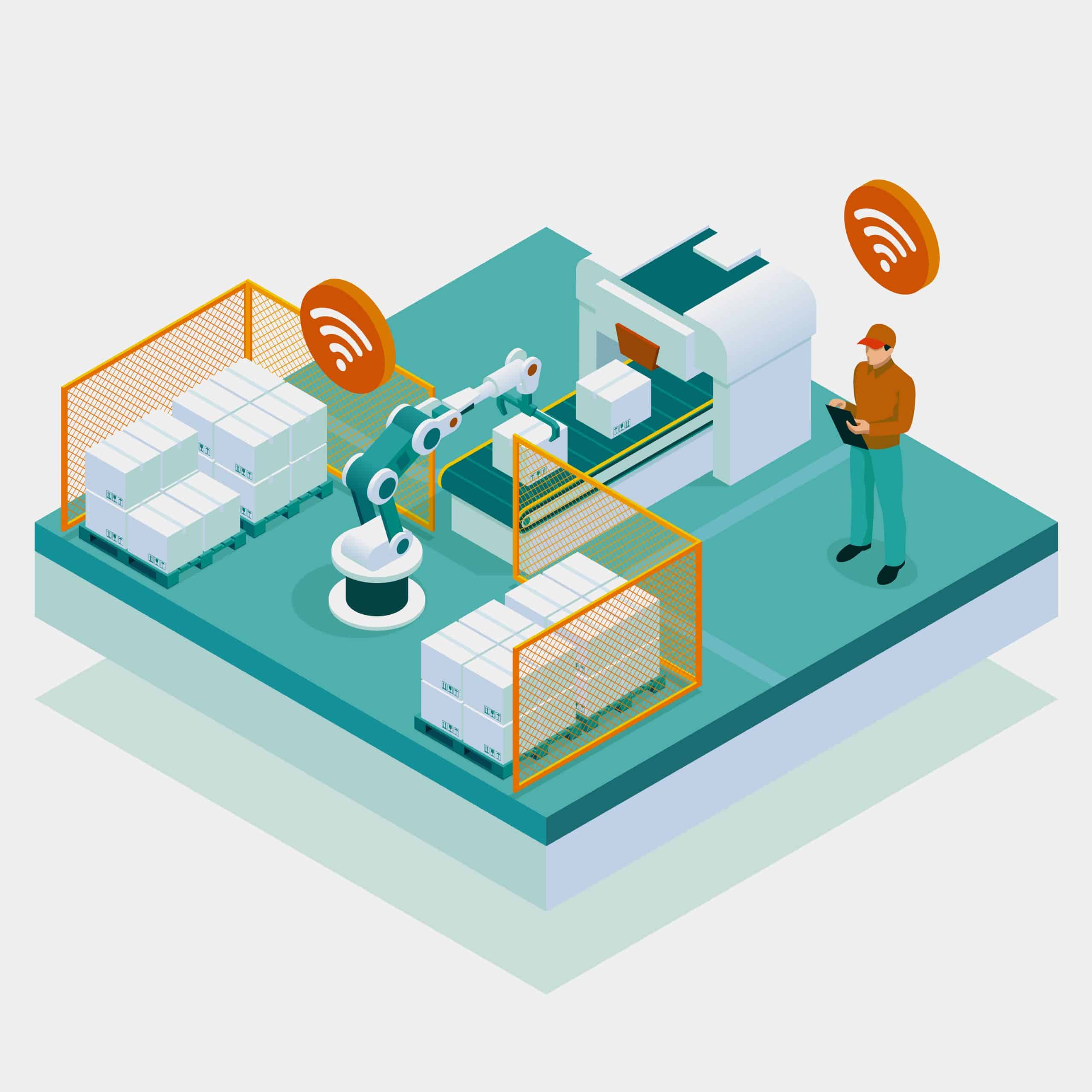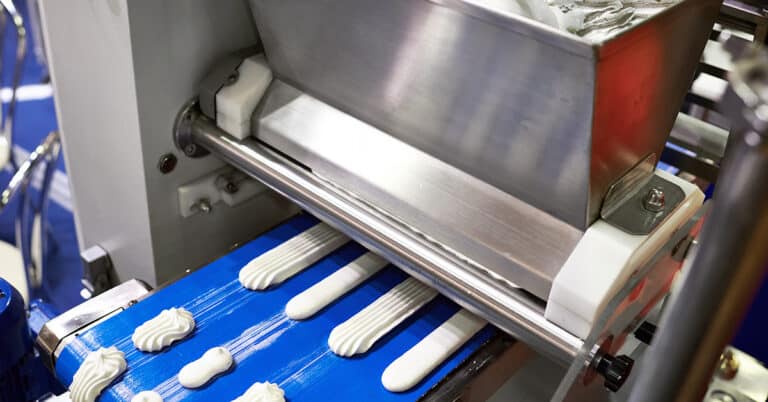Industry 4.0 and the Industrial Internet of Things (IIoT) are technology-driven concepts that may manifest themselves in any number of practical applications and frameworks. The smart shop floor is one such “real-world” implementation of Industry 4.0 principles, taking shop floor automation to the next level by introducing advanced technology to yield a host of new and enhanced benefits: increased efficiency, more control over costs, faster decision-making and improved safety. Smart shop floor principles will seem familiar to anyone well-versed in Industry 4.0:
- Equipment performance monitoring
- Real-time communication between interconnected machines
- Analytics-based decision-making
- Remote data and analytics monitoring
Throughout this piece, we will look at how these underpinnings create the smart shop floor through enhanced shop floor automation, shop floor management, maintenance practices and more.
Shop floor IoT technology
These enhancements are driven by smart, connected technology throughout the facility. This technology takes the form of equipment including:
- Smart industrial sensors
- Wireless communication infrastructure
- Data analysis software
- Remote monitoring and control equipment
- Sensors monitor equipment performance, collecting data when equipment is in good working order and facilitating alerts and proactive troubleshooting when performance falls outside an identified acceptable range.
As with any technology or equipment, these tools are only as good as the personnel and the processes you have in place to make good use of them (which we will discuss in further detail later in this piece). Here, we will examine the benefits that each of these pieces of equipment provides:
- Communication infrastructure, which often includes sensors. These are increasingly built with onboard wireless connectivity. Communication infrastructure facilitates the transmission of real-time performance data, and enables pieces of equipment to communicate with one another. This feedback is critical to the smart floor, enabling decentralized, nimble decision-making.
- Data software enables the storage and analysis of equipment performance data, establishing data-backed benchmarks for acceptable performance and enabling early alert of potential issues.
- Remote monitoring and control equipment allows operators and managers to gain insights into equipment performance — and make decisions about maintenance and operations — from anywhere, whether elsewhere in the facility or off-site.
Technology applications on the shop floor
What is a shop floor in manufacturing? It is the setting where production occurs. It includes the key facilitators of that production: manufacturing equipment, equipment operators, automation equipment, handling equipment, inventory operations, maintenance technicians and more. On today’s shop floor, equipment performance monitoring sensors, wireless communication equipment and smart automation controls should also be considered integral components of the operation. Here, we will examine the specific uses of this equipment:
- Proactive, predictive maintenance: Performance monitoring sensors and connectivity support much earlier detection of potential maintenance issues, enabling alerts at the earliest sign — as indicated by real-time and historical data — of an impending need for maintenance. Operators can determine a convenient time to investigate the issue, eliminating the need for emergency, unplanned shutdowns such as the ones that occur in reactive maintenance scenarios.
- Inventory management: Sensors and advanced data analytics offer uses beyond production. By introducing advanced automation, monitoring and connectivity to the inventory process, you can gain greater insight into real-time maintenance data, enabling more informed and effective decision-making in ordering, supply chain management, storeroom practices and more.
- Performance monitoring from anywhere: Remote monitoring means that operators and management need not be on the shop floor or even in the same facility with equipment. Instead, they can use interfaces such as smartphone apps to continuously monitor equipment performance — and receive any relevant alerts — in real-time.
Benefits of making your shop floor ‘smart’
This technology and its applications offer numerous benefits for manufacturers. These include:
- A vast reduction in unplanned downtime: With more proactive maintenance, facilities can nearly eliminate unplanned downtime by responding to early alerts of impending maintenance issues at the time that is most convenient to the production schedule. By detecting issues early, operators and maintenance technicians can begin monitoring and troubleshooting, maintaining greater control over the production schedule than a purely reactive maintenance approach.
- Enhanced equipment performance: With real-time performance analytics, operators and managers are better equipped to enable equipment to run as efficiently and effectively as possible. Increased insight into optimal and actual performance metrics allows personnel to make more informed operational decisions.
- Improved safety: Breakdowns and catastrophic maintenance issues can create dangerous scenarios on the shop floor, leading to more intricate and dangerous maintenance requirements. Addressing issues before they cause breakdowns and shutdowns can mean less-intensive maintenance and a safer overall environment for employees.
- More nimble, decentralized decision-making: Interconnected communication among equipment means that performance data can be collected, analyzed and acted upon much closer to the point of operation. This allows for “on the ground” personnel to be empowered to use the data at hand to make operational and maintenance decisions without the need to run everything through a central repository. The agility offered by this decentralized process represents a major advance in industrial operations, and is frequently viewed as a prime component of the future of manufacturing, maintenance and automation.
Smart technology on the shop floor is an investment in the future of your facility that can yield major benefits at nearly every level of your operations. With this understanding of the principles of smart manufacturing, and how they can benefit a facility, you are ready to begin taking advantage of the benefits. Learn more about ATS’s R360® Machine Health Monitoring supported by the Reliability 360® Technology Center.






